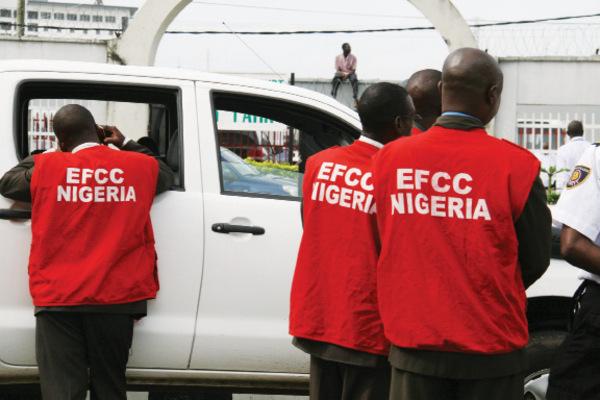- Ex-NNPC GMD, Yakubu, to Face Fraud Charges, Forfeits N3bn
The Economic and Financial Crimes Commission will charge a former Group Managing Director of the Nigerian National Petroleum Corporation, Dr. Andrew Yakubu, for alleged fraud.
Also, a Federal High Court, sitting in Kano, presided over by Justice Zainab Abubakar, on Tuesday, ordered the forfeiture of the sum of $9.7m (N2.96bn) and £74,000 (N28.19m) recovered from Yakubu to the Federal Government.
The EFCC had, last week, said it uncovered the huge money, hidden in a bungalow belonging to Yakubu, in Kaduna.
Yakubu was arrested and arraigned alongside the Chairman of Atlantic Energy Brass Development Limited and Atlantic Energy Drilling Concept Limited, Jide Omokore, last year, but was later converted to a prosecution witness.
With the recent discovery of undeclared funds, sources within the EFCC are now in doubt whether he would remain a prosecution witness.
The source said Yakubu gave operatives the impression that he was broke.
An EFCC detective stated, “Yakubu was reporting to our office in Abuja almost on a weekly basis. Sometimes, he would dress as if he had no money. Imagine our surprise when we stumbled on his loot.”
The detective told our correspondent that the former NNPC boss failed to make a full declaration of his assets when he completed his EFCC Asset Declaration Form A last year.
The source added, “Yakubu is accused of failing to make full declaration of his assets when he completed the EFCC Asset Declaration Form A, which is contrary to Section 27(1) of the EFCC (Establishment) Act 2004 and punishable under Section 27(3) of the same Act.”
When asked whether the commission had been able to determine the source of the recovered funds, the detective said investigations, so far, implied that the money, which Yakubu termed ‘gifts’, were kickbacks.
He said, “The fraud at the NNPC is very deep-rooted. There are various aspects of our investigation but so far, we believe that the monies found at Yakubu’s house are kickbacks.
“You will also recall that the NNPC gets about 445,000 barrels of crude oil per day for the swap deal. Under the swap deal, the NNPC takes out the 445,000 barrels daily to foreign refineries where they are refined.
“Nigeria is supposed to be given petrol, kerosene and diesel in return. However, a large portion of the crude goes missing on the high seas. These have been sources of income for past NNPC top management.”
A report obtained by an American TV station, PBS News Hour, showed that in February 2014 alone, while Yakubu was still in charge of the NNPC, out of 32 ships carrying Nigerian crude oil, about 19 didn’t deliver the same amount of oil they had picked up.
Meanwhile, Justice Abubakar, on Tuesday, ordered the temporary forfeiture of the cash recovered from the ex-NNPC GMD’s residence.
The order was sequel to an ex parte application by the EFCC, seeking an interim forfeiture of the recovered money to the Federal Government.
The ex parte application was moved by Salihu Sani, counsel for the applicant.
Justice Abubakar ruled, “That the sums of $9,772,000 and £74,000, which are now in the custody of the applicant (EFCC), are in the interim forfeited to the Federal Government of Nigeria.”
Yakubu is still in custody, assisting in the EFCC investigations, the commission’s spokesman, Wilson Uwujaren, said.


 Naira3 weeks ago
Naira3 weeks ago
 News4 weeks ago
News4 weeks ago
 Naira4 weeks ago
Naira4 weeks ago
 Travel3 weeks ago
Travel3 weeks ago
 Naira3 weeks ago
Naira3 weeks ago
 Jobs3 weeks ago
Jobs3 weeks ago
 Naira3 weeks ago
Naira3 weeks ago
 Investment4 weeks ago
Investment4 weeks ago

















